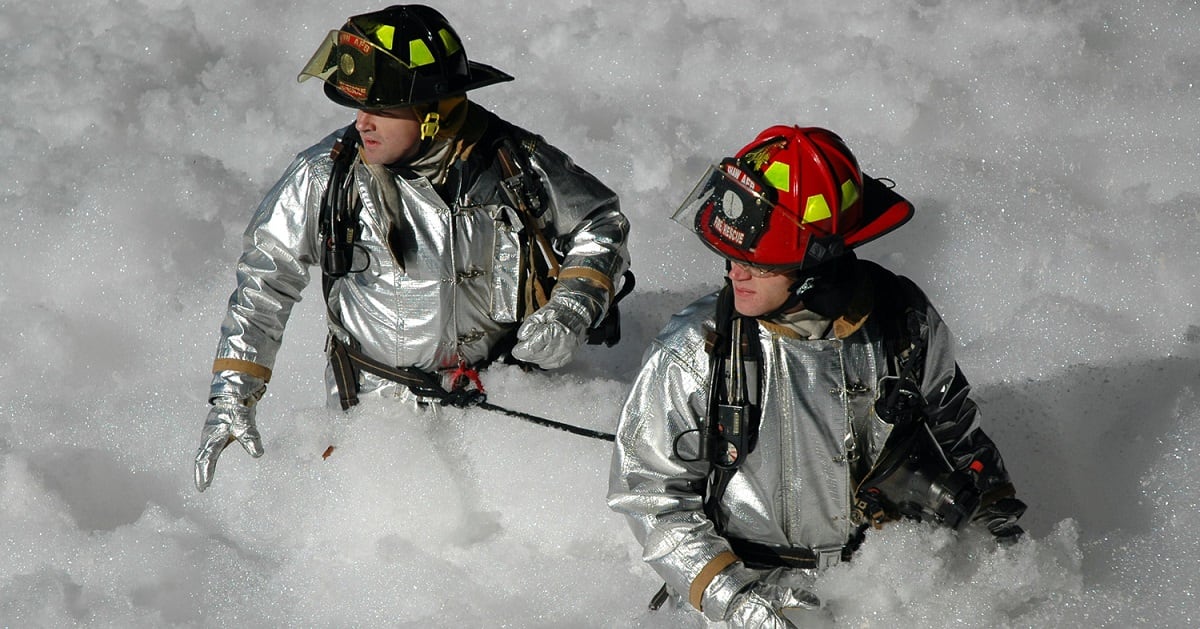The Defense Department is officially requiring any new firefighting foam it buys to be made without per- and polyfluoroalkyl substances, also known as PFAS, toxic chemicals associated with a host of health issues and known to have contaminated the ground water of dozens of military bases.
The Pentagon published a new military specification on Jan. 6 — part of the 2023 National Defense Authorization Act — which also required the department to stop buying PFAS-containing aqueous film-forming foam by October, with another year to eliminate its use entirely.
“The DoD invented AFFF and for decades was one of the world’s most prolific PFAS polluters,” Melanie Benesh, vice president for government affairs at the Environmental Working Group, said in a press release Thursday. “The new standard marks critical progress toward finally eliminating this source of PFAS contamination from military installations.”
The EWG published a report in December of DoD water analysis data, revealing more than two dozen bases that have contaminated groundwater well above Environmental Protection Agency standards — just some of more than 700 bases known to have some level of contamination.
RELATED

A Pentagon PFAS task force stood up in 2019 has been charged with assessing the extent of the contamination, searching for fire-fighting foam alternatives and leading efforts to clean up bases.
“The rate of progress is defined primarily by the rules that govern our physical world. Physics, chemistry, science,” Richard Kidd, the department’s deputy assistant defense secretary for environment and energy resilience, told the House Armed Services Committee in 2021.
“Based on what we know today — and known technology ― frankly, it will be years before we fully define the scope of the problem and with that definition can reflect it in our budget request, and after that, probably decades before cleanup is complete.”
Meghann Myers is the Pentagon bureau chief at Military Times. She covers operations, policy, personnel, leadership and other issues affecting service members.





